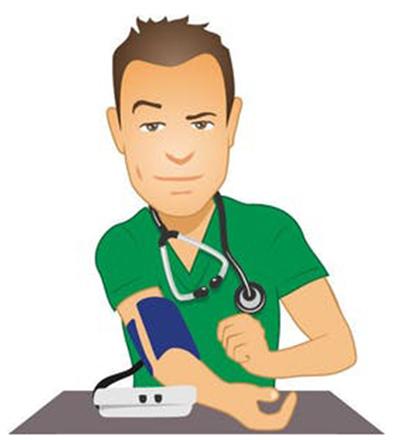You are here
Over the counter painkillers linked to hearing loss
By Reuters - Dec 24,2016 - Last updated at Dec 24,2016

Photo courtesy of everydayhealth.com
Regular use of pain relievers over many years may increase the risk of hearing loss, a recent study suggests.
Researchers analysed long-term data on almost 56,000 US women and found using non-steroidal anti-inflammatories (NSAIDs) like naproxen (Aleve) and ibuprofen (Motrin) as well as acetaminophen (Tylenol) for six years or more was tied to a greater risk of hearing problems than taking these drugs for a year or less.
“Hearing loss is extremely common in the United States and can have a profound impact on quality of life,” said senior study author Dr Gary Curhan, a researcher at Harvard University and Brigham and Women’s Hospital in Boston.
Risks of the painkillers in the study go beyond hearing loss and patients should do their best to avoid long-term use, Curhan added by e-mail.
“Even though these medications are sold without requiring a prescription, they do have potential side effects, one of which is a higher risk of hearing loss; they have also been shown to be associated with a higher risk of hypertension [high blood pressure] and other important medical conditions,” Curhan said.
“They are generally safe when taken in usual doses for short periods of time,” Curhan noted. “However, there should be strong justification for long-term use.”
Women in the study who used NSAIDs at least twice a week for six years or more were 10 per cent more likely to report hearing loss than participants who used these drugs for less than one year.
With acetaminophen, regular users for at least six years were 9 per cent more likely to report defective hearing than short-term users, researchers report in the American Journal of Epidemiology.
Researchers did not find a statistically meaningful association between hearing loss and the duration of aspirin use.
Aspirin has been linked to ringing in the ears in the past, and Vicodin, a painkiller that contains acetaminophen, has been tied to hearing loss with overuse, noted Dr Jennifer Derebery of the House Ear Clinic and the University of California, Los Angeles.
Ibuprofen is less commonly recognised by the public as a potential cause of hearing damage, Derebery, who was not involved in the study, said by e-mail.
Even though the magnitude of increased risk is small for other pain relievers in the study, hearing loss is so common in the population that a slight bump up in risk can translate into a widespread public health problem, the authors note.
During the study, almost 19,000 women developed hearing loss.
The researchers estimate that about 5.5 per cent of these hearing loss cases might be attributable to NSAID or acetaminophen use.
Previous research has found a similar link between painkillers and hearing loss in men, though studies to date have yet to explain how the drugs might impact hearing, said Dr Wilko Grolman, a researcher at the University of Utrecht in the Netherlands who was not involved in the study.
“I consider this a confirmation that we need to always be critical when deciding to use any medication including these painkillers,” Grolman said by email. “Our hearing is extremely valuable and if possible we should preserve it.”
However, the study is observational and does not prove these painkillers cause hearing impairment.
“The hearing loss was self-reported and not measured objectively with hearing tests,” Dr David Haynes, a researcher at Vanderbilt University Medical Centre in Nashville who was not involved in the study, said by email.
It is also possible that some of the hearing loss associated with painkillers might be tied to the underlying medical problems people took pain relievers to treat, said Dr Michael McKee, a researcher at the University of Michigan in Ann Arbor who was not involved in the study.
For example, people with chronic pain or arthritis are more prone to heart disease and diabetes, both of which are linked to hearing problems, McKee said by email.
“Exercise and physical therapy may be effective ways to manage chronic pain,” Mckee said. “Protection from excessive noise still remains the best way to reduce your lifetime hearing loss risk.”
Related Articles
A growing number of people are taking high doses of the painkiller acetaminophen, and many take so much during cold and flu season that they
The commonly used painkiller diclofenac may be linked with an increased risk of heart problems, a large Danish study suggests. Diclofen
People who take pills to lower their blood pressure often take other drugs that reduce the pills’ effectiveness, a recent study suggests.Res


















